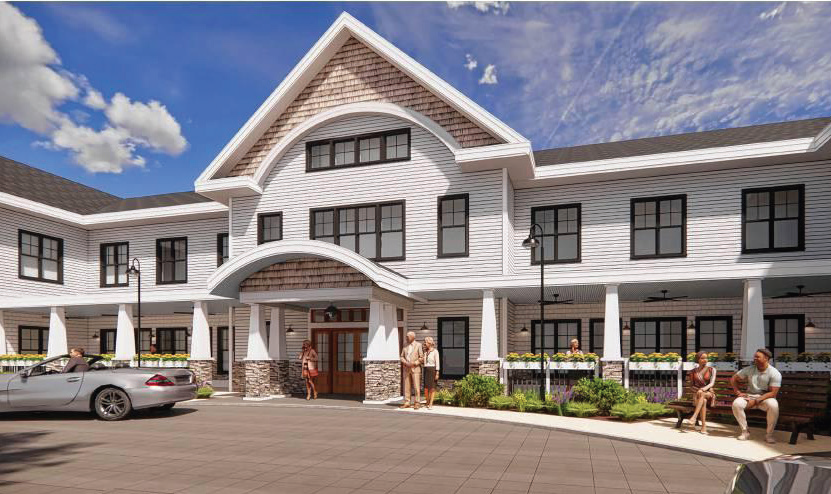The development of a total of nearly 200 housing units has stalled after the discovery that chemical contaminants from a dry-cleaning business have spread to the groundwater of one of the two project sites.
Planning for both projects — one for seniors and the other for workers — has been ongoing for more than two years, and the contamination has not only compromised private water supplies on both sites, but also has raised questions about the municipal water system’s capacity and the procedures by which water connections for that system are approved.
In July, results from a well test at the site of a planned 139-unit senior living facility on New London Hospital property adjacent to the site of New London Cleaners, a dry cleaning and coin-operated laundry business, revealed the presence of Tetrachlorethylen, or PCE, contamination.
“We were hoping to break ground this fall,” on the facility, Joe Hogan, who owns Continuum Health Services, said by phone last Wednesday.
Hogan’s company is working with the hospital to construct the senior housing, which is called New London Place. It would include 95 condominiums and a 40-unit assisted living facility that would include memory care, Hogan said.

An artist’s rendering of the New London Place assisted living facility. (Courtesy of Continuum Health Services)
Similarly, “water was the last critical milestone for getting shovels in the ground,” on a 60-unit workforce housing project to be located just across County Road from the hospital, Twin Pines Housing Executive Director Andrew Winter said last Thursday.
Following the discovery of the contamination at the New London Place site, Twin Pines, a White River Junction-based nonprofit housing developer, is now in a legal dispute over the precinct’s denial of its request for access to the municipal water system for the project.
Twin Pines began working with the New London Planning Board in late 2022 on the project, called Long Meadow Commons, which would create a mix of one- and two-bedroom apartments on an 8-acre site across County Road from the hospital.
In 2023, Twin Pines applied for a permit to connect to the Springfield-New London Water Precinct system, but was denied due to a lack of capacity on the system.
The precinct system has a maximum capacity of 500,000 gallons a day, Rob Thorp, water precinct superintendent, said by phone last Tuesday.
The water precinct serves roughly 1,200 households, Thorp said. Created in 1925, it is a “village district” with a three-person board of governors. The system is funded by user fees and a special property tax for property owners who live in the district’s service area. The system’s water source is a well field on Colby Point, a small peninsula that juts into Little Lake Sunapee.
One well delivered a sufficient supply, but before the nonprofit could begin testing the water, the contamination discovery at the New London Place well site prompted DES to deny Twin Pines permission to test its well, Winter said.
If Twin Pines is not able to build on the County Road property, “it’s likely that we would have to return those funding commitments and start the process over,” Winter said.
— CHRISTINA DOLAN/VALLEY NEWS